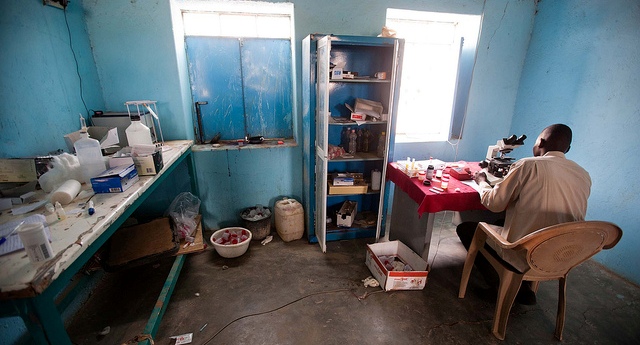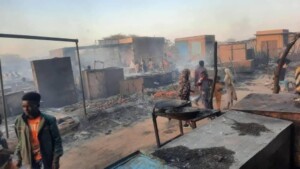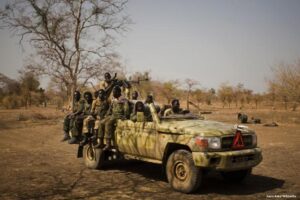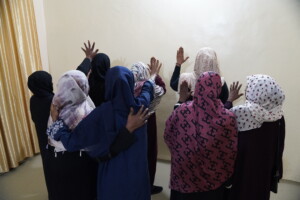Sudan war enters its 100th day, medicines almost depleted in conflict areas

A laboratory in the rural hospital of El Sereif in North Darfur (file photo: Albert González Farran / UNAMID)
Medical shortages increasingly threaten the lives of vulnerable people caught in the violence in Darfur. The UN humanitarian coordinator in Sudan has called for an immediate halt to attacks on humanitarian aid workers in a statement marking 100 days since the start of the war in the country.
Nyala, the capital of South Darfur, is reeling from four days of violent clashes, which claimed the lives of approximately 30 people. The city’s grand market is closed, causing severe shortages of essential consumer goods, sources told Radio Dabanga.
The health situation in Nyala is alarming, they added, especially for those with chronic diseases and kidney failure. Many kidney patients “only receive dialysis once a week instead of three”.
In Kass, located north-west of Nyala, residents also report a lack of life-saving medicines, including insulin.
El Sadig Mahdi, an administrative officer in Kass, alerted Radio Dabanga that medical treatment for the injured following the `violence in Kass more than a week ago “now relies on herbs and other natural treatments, as the medicine stocks in the town are depleted”.
He said that the hospital of Kass “in particular lacks essential medical supplies, examination aids, and blood transfusion resources”. Power and water outages are also affecting life in the town.
The Rapid Support Forces’ (RSF) control over the area seriously hinders the flow of aid and medical supplies, Mahdi explained.
No accessibility
The Sudanese Doctors Union reported yesterday that “70 per cent of people in conflict areas lack access to healthcare”, with a critical shortage of medical aids in functioning hospitals across the country.
Various obstacles, including a lack of safe passages and delayed salary payments for medical personnel since April, hinder the medical services.
The impending rainy season raises concerns about the outbreak of diseases, given the overcrowding of displaced people in shelter centres. The scarcity of clean drinking water and water purification supplies further compounds the crisis, just as attacks on medical personnel and the looting of healthcare facilities
Assaults on medical personnel have become recurrent. Recently, team of Doctors Without Borders (MSF) was assaulted in Khartoum. The Ombadda Hospital in Omdurman, and the hospital of Um Rawaba and the El Obeid Teaching Hospital in North Kordofan were also attacked.
According to a statement by the Khartoum North Emergency Room yesterday, 29 out of 31 health facilities in the city have closed their doors.
Aid workers killed
As the armed conflict in Sudan enters its 100th day, UN Humanitarian Coordinator in Sudan Clementine Nkweta-Salami issued a strong call for an immediate halt to attacks on humanitarian relief workers.
“Since the onset of the conflict, at least 18 aid workers have lost their lives, many others have been injured, and over two dozen have been detained or remain unaccounted for”, she stated.
The situation has been further compounded by attacks on humanitarian facilities, with more than 50 warehouses looted, 82 offices ransacked, and over 200 vehicles stolen. One particularly devastating looting incident in El Obeid in early June resulted in the loss of food “that could have fed 4.4 million people”.











 and then
and then